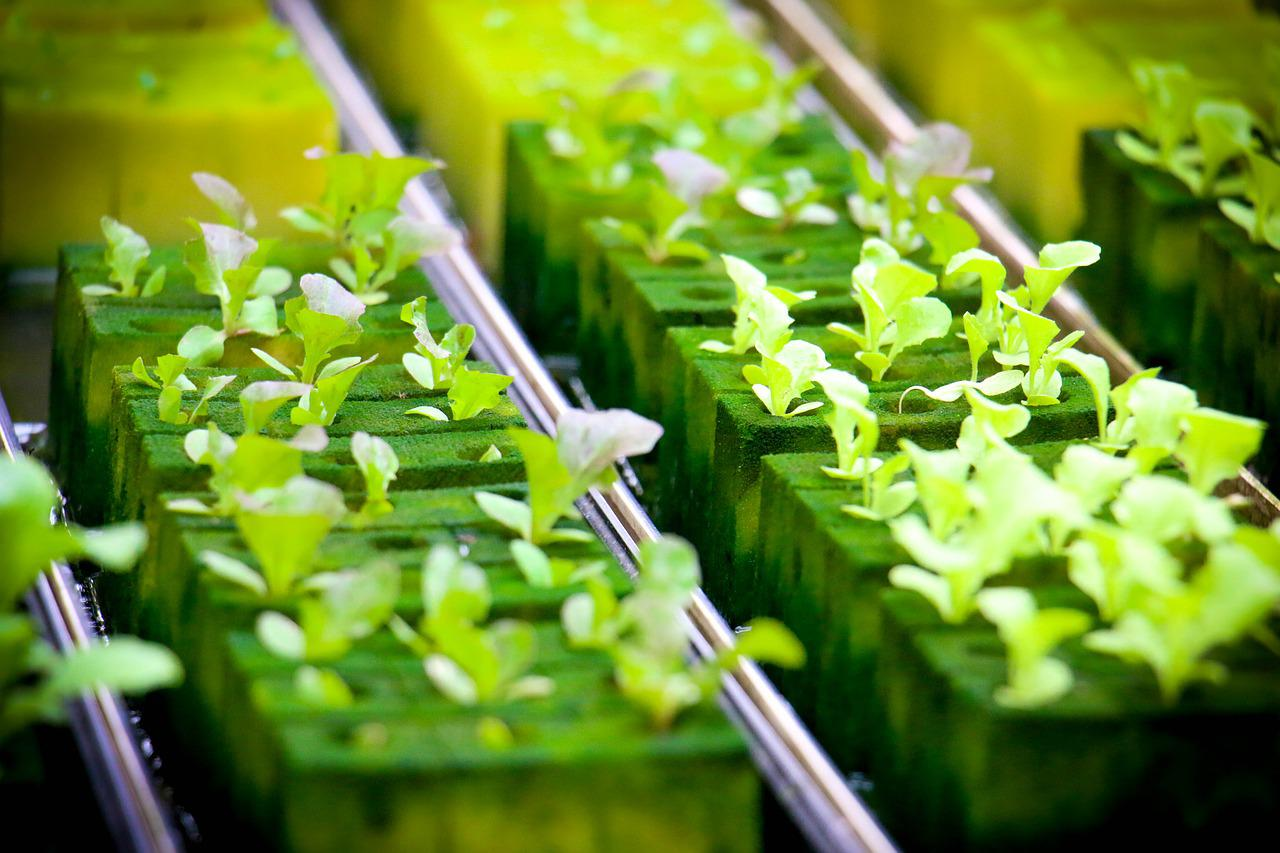Your Cart is Empty

Advantages and Disadvantages of Hydroponics – A Beginner’s Guide
May 03, 2022 5 min read
Are you new to the world of hydroponics? Interested in seeing what all the fuss is about? You’ve come to the right place.
At The Hippie House, we pride ourselves on being Australia’s hydroponic experts. We’ve put together this guide for anyone interested in dipping their toes in the world of hydroponics, discussing the pros and cons to help get you started in this rapidly growing industry.
Read on to learn all about hydroponics, how it works and the associated advantages and disadvantages.
the basics
Whereas traditional gardening occurs in soil, hydroponics refers to any method of growing where the soil has been replaced with an aqueous, nutrient-rich solution. Hydroponics allows you to grow anywhere, any time of year, with a huge range of different systems and setups available to suit all growing needs.
Whether you’re operating in a commercial facility or growing leafy greens on a benchtop at home, hydroponics offers a range of versatile options for all types of growers. With more demand than ever for natural, organic farming, hydroponics offers a practical solution for growing happy, healthy fruits, vegetables and plants.

What can you grow with hydroponics?
Due to the nature of hydroponic gardening, certain types of plants that will thrive while others will struggle. Here are some of the best plants to grow in a hydroponic setup:
- Tomatoes
- Peppers
- Herbs
- Lettuce
- Strawberries
It is best to avoid plants that grow tall or require a lot of room for their roots to spread out, such as onions, potatoes or corn.

how hydroponics works
While the ins and outs of a hydroponic system may seem daunting at first, all setups are based on the same principle of nutrient-rich solutions to support root development. Whatever type of setup you use, there are five main factors crucial to any hydroponic system:
- Fresh water
- Oxygen
- Root support
- Nutrients
- Light
If you’re feeling intimidated by all of the options out there, check out our collection of best selling hydroponic products below.
hydroponic supplies and equipment
There's nothing better than starting with a little seed and being able to support it until it grows into a big healthy plant that radiates life, success and happiness.

Goodbye soil
Hydroponics is soil-free, with the most common method of growing being the suspension of plants directly in an aqueous solution. Alternatively, mediums such as rock wool, clay pellets or coco coir can also be used in place of soil.
There are two types of systems in hydroponics:
-
Active system: nutrients are delivered to the plant’s roots via pumps that circulate the nutrient solutions.
- Passive system: utilises gravity, flooding or capillary action without the aid of pumps.

GRODAN ROCKWOOL TRAY WITH 77 PROPAGATION CUBES
Go soil-free with a propagation tray and Grodan rockwool cubes.
Mimicking sunlight
It is usually necessary to provide an artificial light source to your hydroponic garden in place of natural sunlight. A bit of research will go a long way when it comes to choosing the perfect grow light for your setup.
If you’re unsure which light might be best for you, check out our beginner's guide to vegetable grow lights.

LED Grow Lights
Check out our entire range of LED grow lights to take your hydroponic gardening to the next level.
The advantages
Now you know what hydroponics is all about, it’s time to get into the nitty gritty. Here are just a few advantages of hydroponic gardening:
Grow all year round
While conventional growing is so dependent on climate, hydroponics offers an alternative solution to allow plant growth and development at any time of the year.
It is so important to be able to continue growing natural produce in an increasingly volatile climate, making hydroponics a sustainable solution when thinking of our future on this planet.
Rapid results
Hydroponic gardening produces stronger and more rapid growth. This is due to a few main factors:
- Growing in a controlled environment with carefully monitored conditions.
- Increased oxygen levels in nutrient solutions.
- System protected from inclement weather.
Save on water
Hydroponic systems are far more efficient than soil-based gardening when it comes to water consumption. Whereas only a small percentage of water reaches the roots in a traditional garden, hydroponics allows the roots immediate access to the nutrient solution.
With little water lost from evaporation, as well as the solution being recirculated a number of times, hydroponic gardening is a much more sustainable practice with water consumption in mind.

A garden in your bedroom – why not?
With hydroponic gardening, you can grow wherever suits you. You won’t be bound by environmental or climatic factors, so your setup can be perfectly suited to your individual needs.
This means you can grow whatever you want, wherever you want.
Goodbye pests
By growing in a controlled environment, your garden won’t be in danger of being ravaged by pests and insects.
You’ll be able to grow with peace of mind knowing there aren’t any nasty bugs penetrating your system, as well as negating the need for chemicals and pesticides, keeping your garden completely organic.

Disadvantages
While there are so many benefits of hydroponic gardening, there are a few disadvantages that must be considered. Here are a few things to look out for:initial costs
Depending on your growing requirements, hydroponic gardens can be expensive to start up. There are a number of parts and accessories you'll need for success, such as grow lights and cooling systems, so it is important to do your research and understand exactly what will be required when starting out in hydroponics.
The types of plants you are growing and the size of your growing space are just a few factors that will determine the initial cost of your setup.
Maintenance
Hydroponic gardeners need to be observant and attentive when it comes to their setup. With the environmental control of a hydroponic system comes the need for careful monitoring of conditions.
You’ll also need to keep an eye out for maintenance of your garden’s components to ensure your system runs smoothly at all times, allowing your plants to thrive.
power outages
Your hydroponic system will rely on electricity for a number of components, meaning a power outage could be disastrous for your garden.
Having said that, there are a few precautions you can take to prevent the worst should you experience an outage.

The choice is yours!
At The Hippie House, we believe hydroponics to be the future of gardening. With its many advantages in sustainability and practicality, it’s hard to argue the potential of hydroponic gardening to help protect and preserve our planet.
You’re now clued in to all of the great things about hydroponics, as well as its disadvantages and possible setbacks – now it’s time to get your hands dirty.
Reach out to our expert support team
If you have any questions relating to hydroponics, whether you’re having problems with your setup or are just getting started, reach out to our friendly team of hydroponic experts who can help you every step of the way.Leave a comment
Comments will be approved before showing up.

